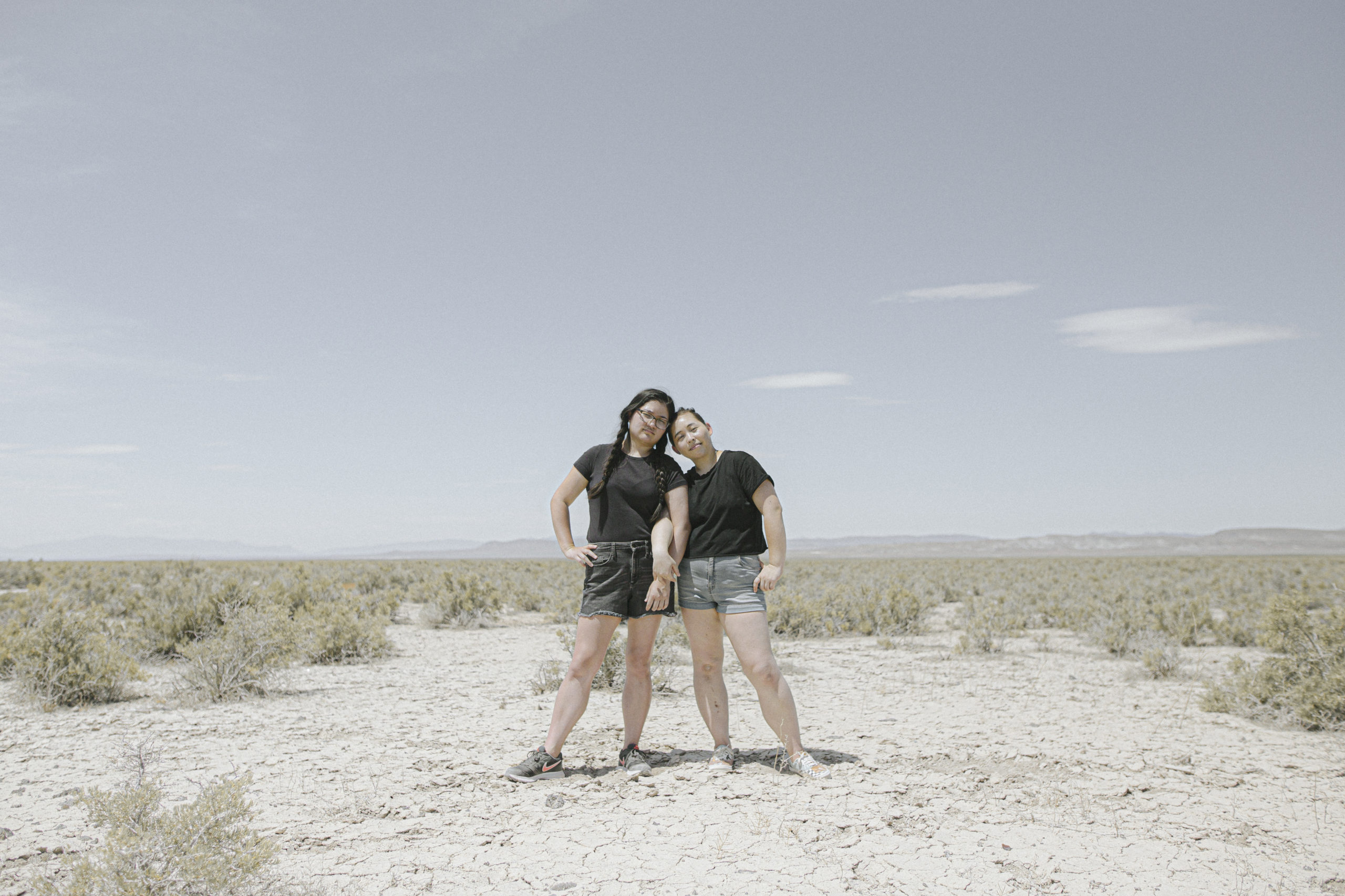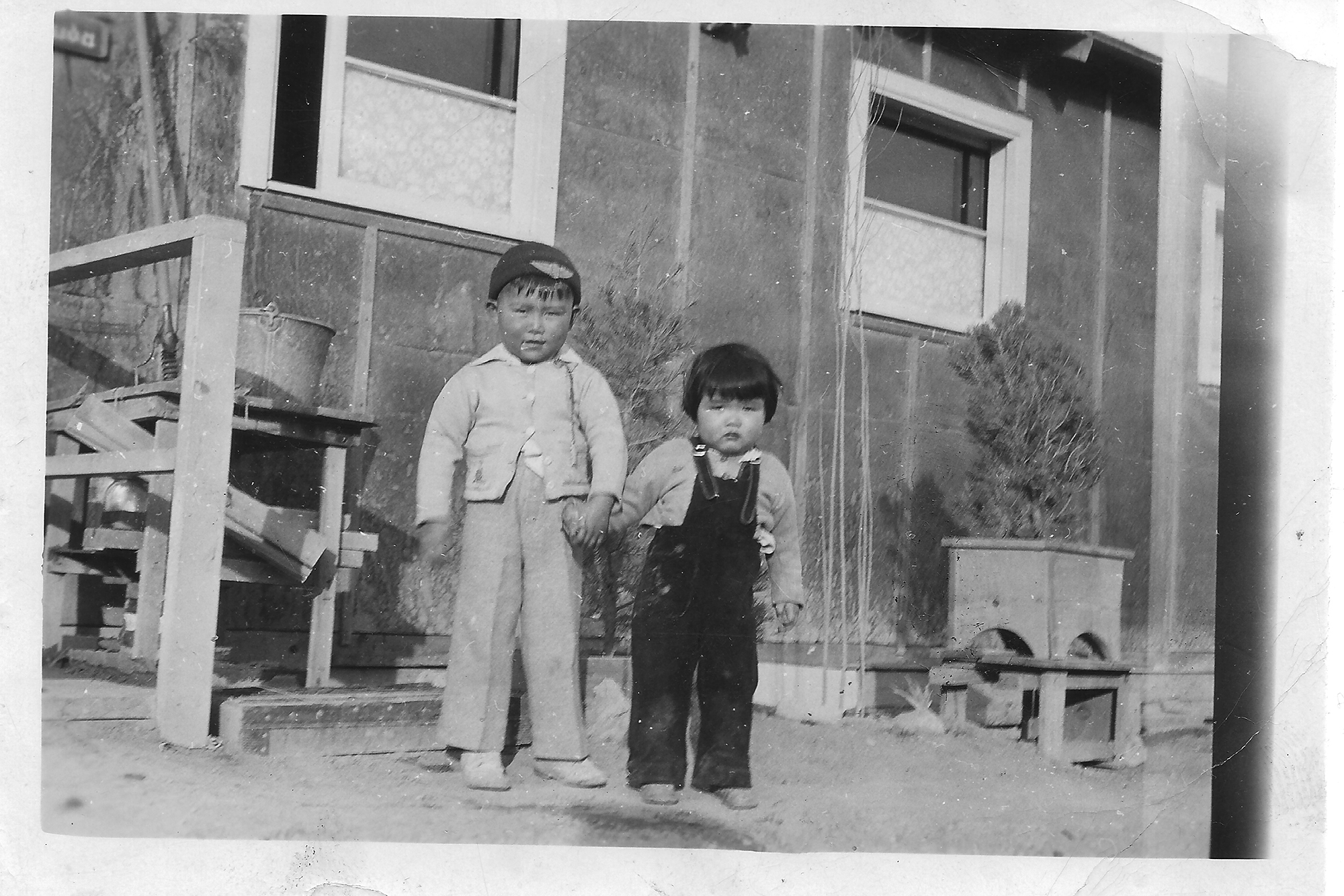“We knew [the incarceration] happened, but we didn’t discuss it much further. I don’t know if this is a good thing or a bad thing. It just wasn’t a subject we really talked about.”
— Natalie Ruiko Kimura, on her grandfather
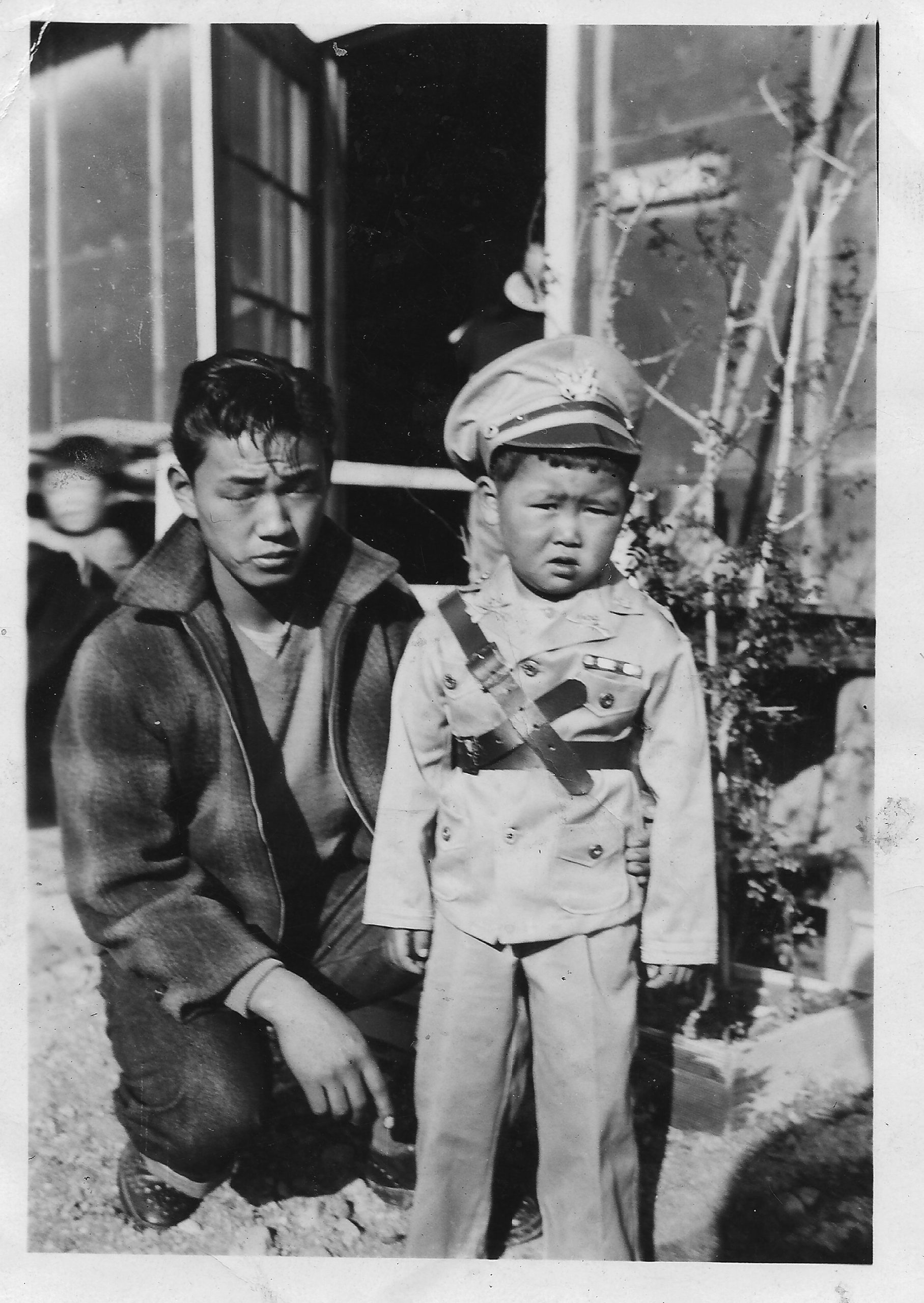
Ronald (right) with his uncle Tommy (left) at Topaz. Family members recall young Ronald singing “Remember Pearl Harbor” to his barrack neighbors while wearing a military uniform.
Ronald Isao Masuda
Sansei
Ronald Isao Masuda was born in Watsonville, CA and grew up in Fremont, CA. He was four years old when he and his family were sent to Topaz after being detained at Tanforan Assembly Center. He is the older brother of Patricia Michiko Masuda.
Although Ronald has not shared much about his incarceration, his grand-daughters recall him saying that he often went around to different tables at the mess hall asking for food. “The families would give it to him like that,” says his grand-daughter Natalie. “He would be that kid. He was cute and young.”
Other family members recall Ronald singing to his barrack neighbors in a military uniform. “He wanted this soldier’s uniform, so my grandma bought it out of the catalog,” says his niece Kimiko. “He used to go around singing ‘Remember Pearl Harbor.’” Some barrack neighbors were amused; others were not as impressed and offered him candy to make him leave.
In the summer of 1944, Ronald’s father applied for the Citizen’s Indefinite Leave Card to work for a jeweler in Cleveland, OH. When the rest of his family was released, they headed westward to settle back in California. They worked as sharecroppers while living in a tent on their employer’s property.
When his family eventually saved enough money to buy their own property, Ronald’s father struggled to find someone willing to sell to them. “The people who were going to sell him the land didn’t want to give it to him,” says his grand-daughter Caroline. “They told him that the neighbors aren’t going to want a Japanese man owning land.” So Ronald’s father set out to ask his prospective neighbors—in person—how they felt about it. Nobody objected to him moving in. The landowner eventually sold Ronald’s father the property.
Unlike his sister Patricia, Ronald never returned to Topaz after the war. “[He] never had any interest in going back, which is unfortunate because I would want to go there with him,” says Caroline. “But again, that’s hitting very vulnerable territory, talking about emotions attached to Topaz. He wouldn’t want to do that.”
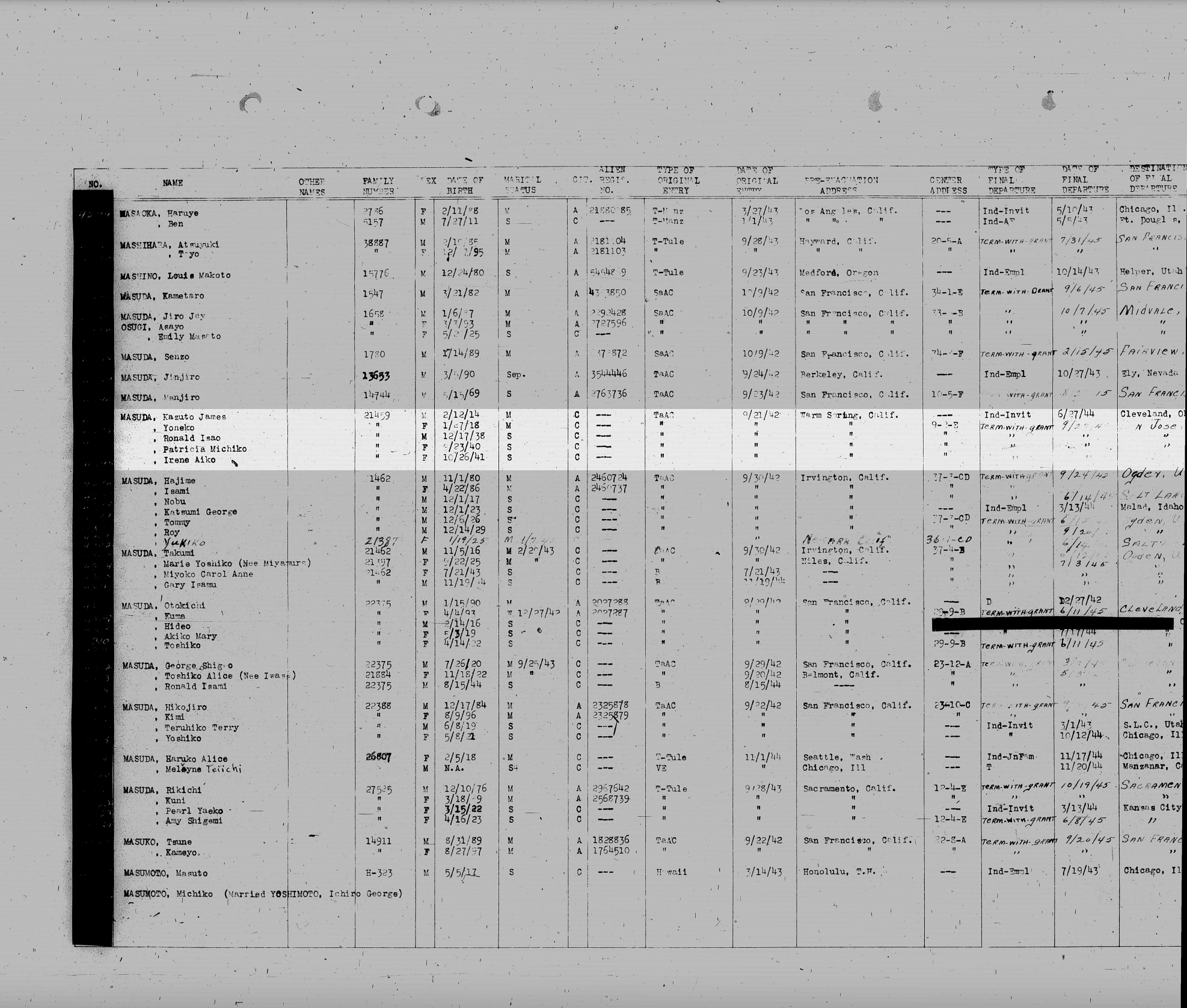
Ronald’s information as it appears in the Final Accountability Roster for Topaz. Courtesy of Densho Encyclopedia.
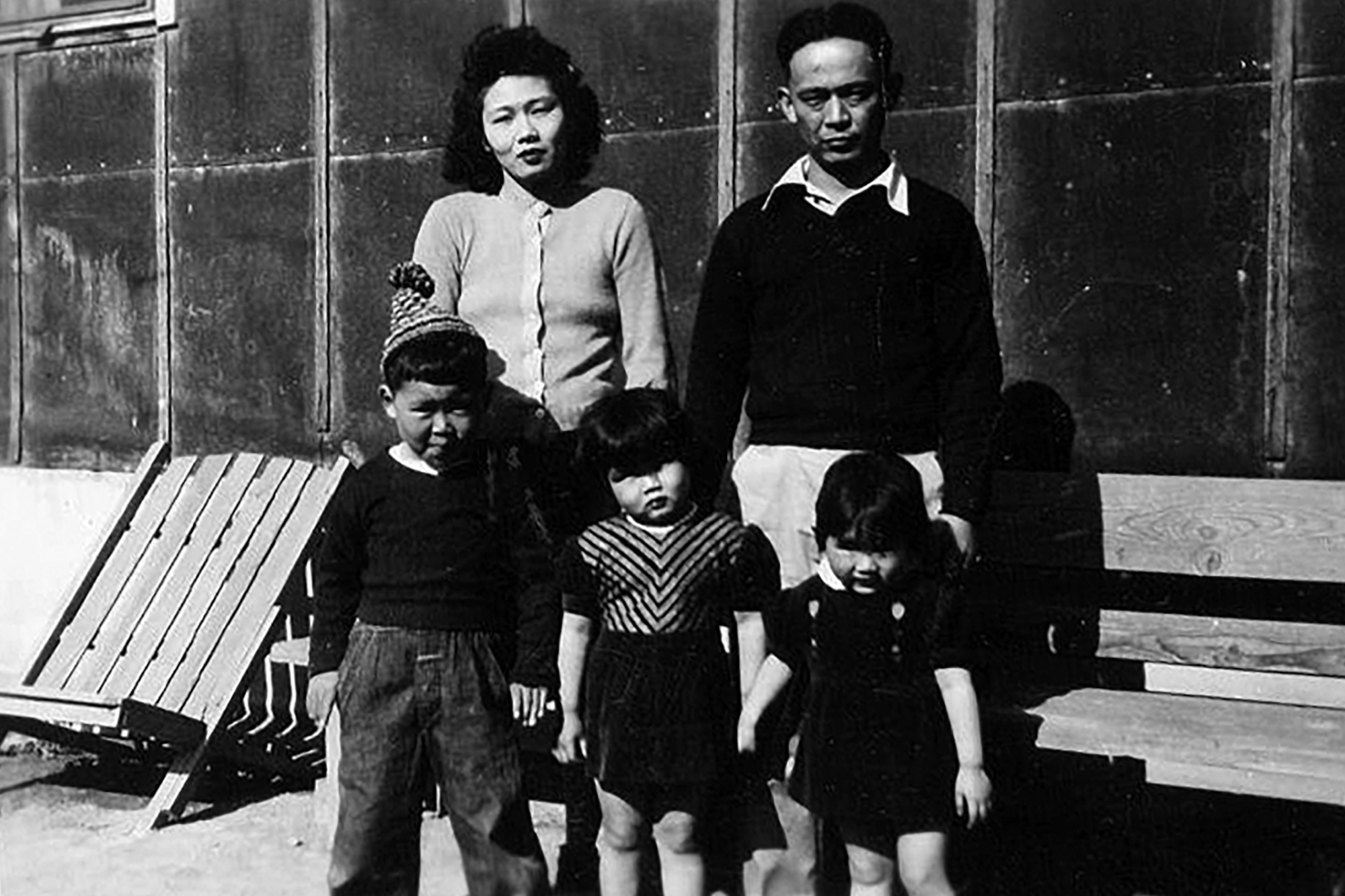
The Masuda family stands for a portrait at Topaz. Clockwise from top left: Ronald’s mother Yoneko, Ronald’s father Kazuto, Ronald’s sister Eileen, Ronald’s sister Patricia and Ronald. Courtesy of the Marr Family Collection.
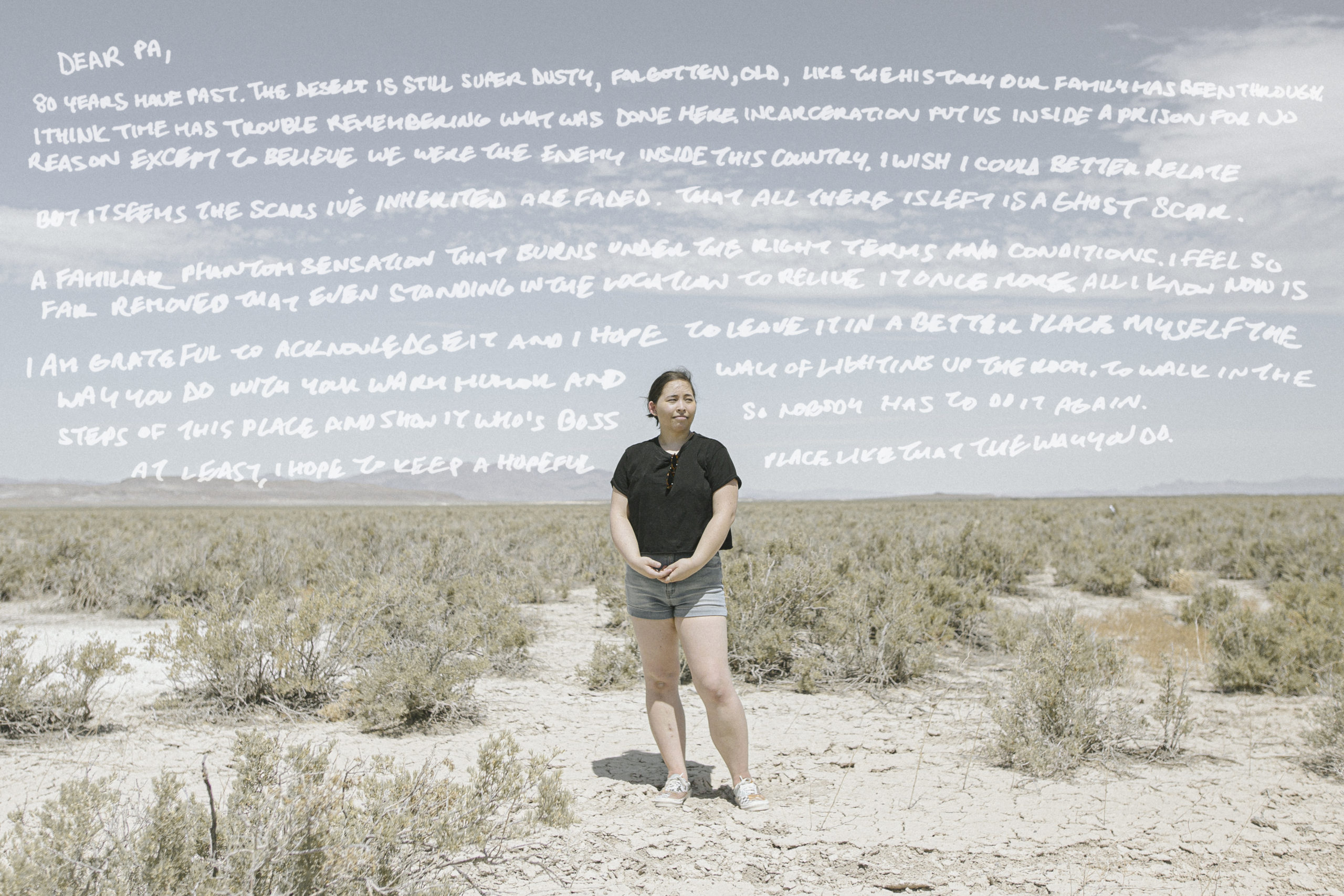
Listen to this portrait.
Natalie Ruiko Kimura
Gosei/Nisei
Natalie Ruiko Kimura is the maternal grand-daughter of Ronald Masuda. She was born in Pleasanton, CA and grew up in Tracy, CA between a mixed heritage Yonsei mother and an Issei father who was born in Japan and adopted by a Japanese American family in the US.
Growing up, Natalie says some of her peers took an active interest in Japanese culture, but only selective parts—like food or anime. “They didn’t really notice the historical significance [of being Japanese] because they’re just kids,” she says. “They just kind of get to live their lives and go, ‘Oh, I like this. Oh, I can learn Japanese. Oh, I can go to Japan.’” Meanwhile, Natalie found it difficult to ask her family about her own cultural heritage or history. “They didn’t tell you. They didn’t want to,” she says. “I mean, it makes sense—they were protecting themselves,” she says.
Seeking answers, Natalie visited Topaz in 2022 to attend a ceremony commemorating the one-year anniversary of the unearthing of the Wakasa Monument. Although she is still learning about Ronald’s history, Natalie says she sometimes feels the residual effects of her family’s incarceration. “It kind of feels like a monster under the bed. It feels like it’s in your imagination, because you never got to experience it yourself,” she says. “But it has affected you. This big thing happened to you or your family, but you have no idea. It’s a little scary.”
“It kind of feels like a monster under the bed. It feels like it’s in your imagination, because you never got to experience it yourself. But it has affected you.”
— Natalie Ruiko Kimura
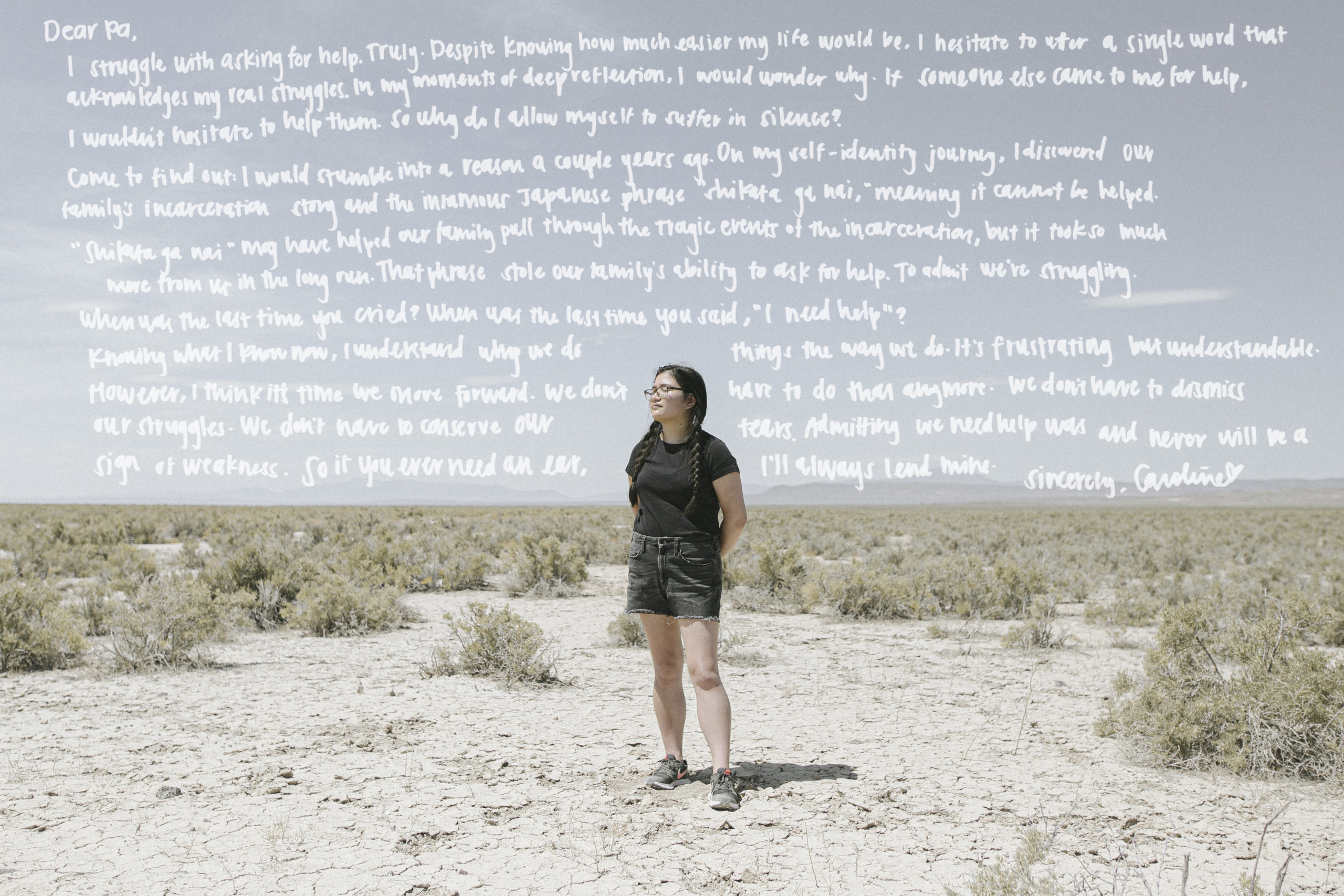
Listen to this portrait.
Caroline Shizuko Kimura
Gosei/Nisei
Caroline Shizuko Kimura is the maternal grand-daughter of Ronald Isao Masuda. She was born in San Ramon, CA and grew up in Tracy, CA between a mixed heritage Yonsei mother and an Issei father who was born in Japan and adopted by a Japanese American family in the US.
Growing up, Caroline says her family did not require her sisters and her to go to Japanese school or to learn about their cultural heritage. “We didn’t have a very Japanesey childhood,” she says. “I think that’s why we struggle now with our identity.” Since becoming a member of a Japanese American community organization in 2020, however, Caroline says she has met peers who have helped her gain a new perspective on her cultural identity. “They don’t shame you at all for not knowing something [about Japanese culture]. There’s no stigma around it,” she says. “It’s another layer of impostor syndrome that I’m trying to peel back and be like, ‘No, don’t bring yourself down.’”
Caroline joined her sister Natalie on a pilgrimage to Topaz in 2022. “Actually being there on the site gives you the full context. So much dirt and dust, and your feet are sinking in like quicksand,” she says. “It’s a sign that you’re not able to leave this place.”


